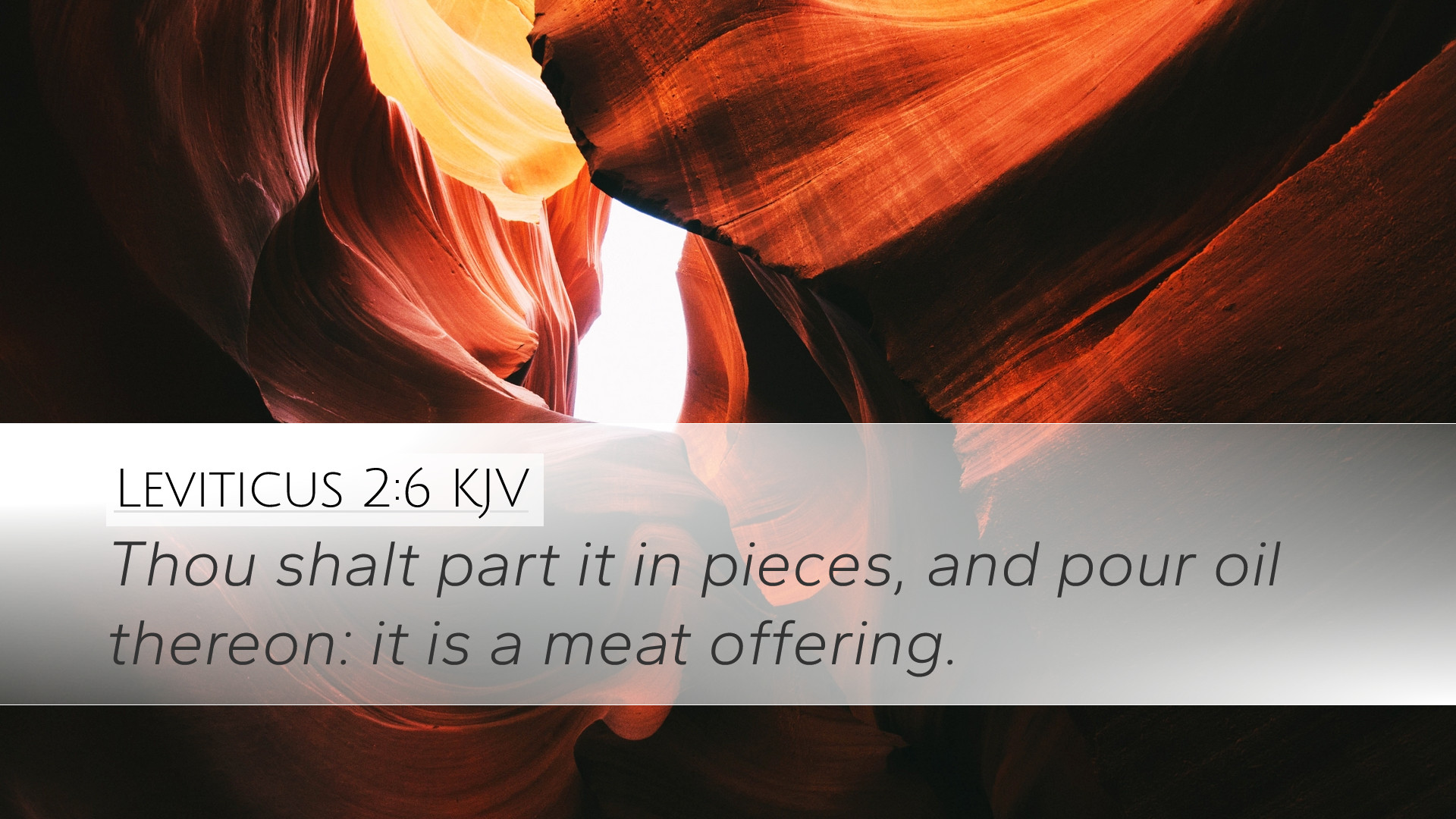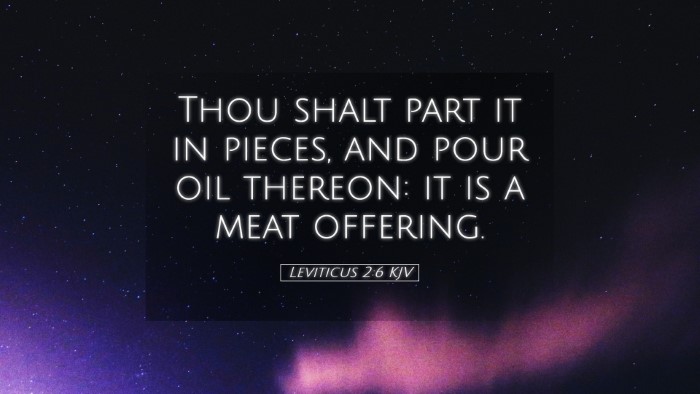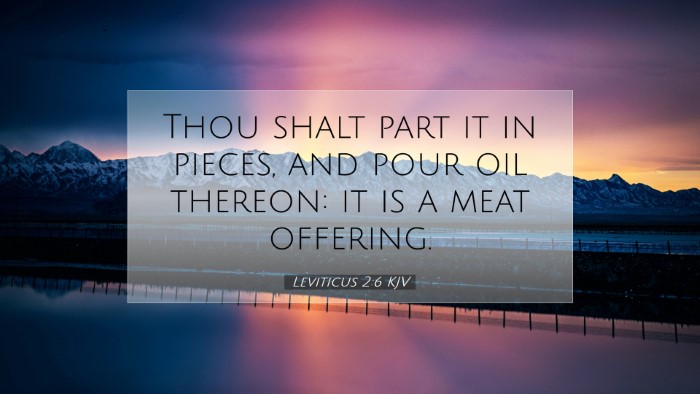Commentary on Leviticus 2:6
Bible Verse: "You shall break it in pieces and pour oil on it; it is a grain offering." (Leviticus 2:6, ESV)
Introduction
The book of Leviticus serves as a significant component of the Pentateuch, providing Israelites with instructions on worship, offerings, and holiness. Leviticus 2:6 specifically addresses the grain offering, focusing on the preparation and presentation of these offerings to God. This examination draws insights from various public domain commentaries, particularly those by Matthew Henry, Albert Barnes, and Adam Clarke, to provide a comprehensive understanding suitable for pastors, theologians, and biblical scholars.
Context of the Grain Offering
Leviticus chapters 1 through 7 detail various offerings, highlighting the importance of each in Israel's sacrificial system. The grain offering, or minhah, contrasts with animal sacrifices and is predominantly a tribute of thanksgiving and devotion to God. This section expounds on its ritual significance and theological implications.
Insights from Commentary
- Matthew Henry: In his commentary, Matthew Henry emphasizes the voluntary nature of grain offerings. He notes that while they were not compulsory like sin offerings, they were a way for worshippers to express gratitude and devotion. The act of breaking the grain offering symbolizes the believer's humility before God, acknowledging that all sustenance is ultimately provided by Him.
- Albert Barnes: Barnes provides a thorough analysis of the technical aspects of the offering, highlighting the necessity of adding oil as a sign of consecration. He explains that oil represents the Holy Spirit and signifies the offering's acceptance by God. The phrase "break it in pieces" indicates that the offering must be prepared with care, ensuring that it is presented in a fitting manner.
- Adam Clarke: Clarke offers observations on the broader cultural implications of grain offerings. He explains that in ancient Near Eastern cultures, food offerings were often made to deities as acts of securing favor. However, in the Israelite context, these offerings reflect a relational dynamic based on covenant rather than mere appeasement.
Theological Significance
The theological implications of Leviticus 2:6 extend beyond mere ritual observance. Each grain offering is an expression of faith, recognizing God's providence and grace. As scholars examine this passage, several key themes arise:
- Recognition of God's Provision: The act of offering grain demonstrated an acknowledgment of God's nourishment and care. As Henry articulates, every grain is a reminder of God’s blessing.
- Consecration and Holiness: The use of oil signifies a necessary honor bestowed upon God. Barnes points out that this consecration emphasizes the holiness of both the offering and the one presenting it.
- Community and Worship: Grain offerings were often shared among worshippers and priests, fostering community. Clarke notes that this aspect reaffirms the corporate nature of worship in Israel, emphasizing communal faith and unity.
Practical Application for Believers
For modern believers, Leviticus 2:6 provides profound implications for how we approach God with our offerings and lives:
- Voluntary Giving: Just as grain offerings were voluntary, believers are encouraged to give generously and willingly, recognizing that all we have is a gift from God.
- Prepare with Purpose: The emphasis on breaking the offering in pieces suggests that believers should prepare their gifts to God thoughtfully and with intentionality.
- Celebrate God’s Provision: Our offerings are an opportunity to celebrate and thank God for His continuous provision in our lives.
Conclusion
Leviticus 2:6 offers a rich tapestry of meaning, weaving together themes of provision, consecration, community, and worship. By integrating insights from Matthew Henry, Albert Barnes, and Adam Clarke, we understand that the grain offering embodies an essential aspect of Old Testament worship that resonates with the New Testament believer's life. The preparation and presentation of offerings—like our very lives—should reflect our deep gratitude and devotion to God.


